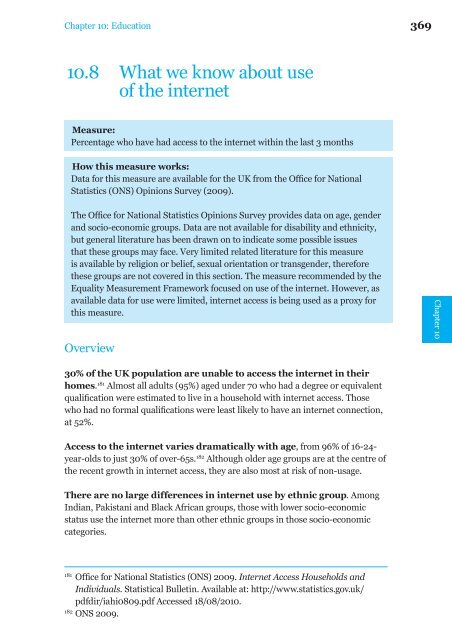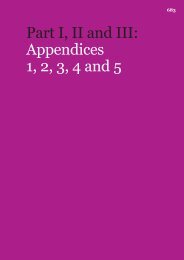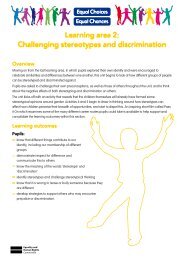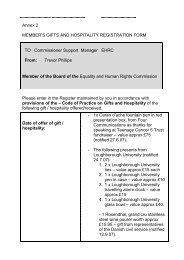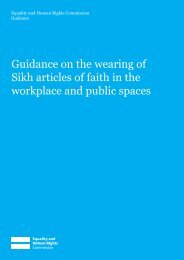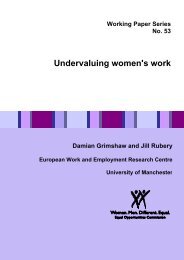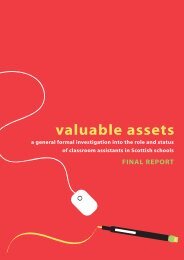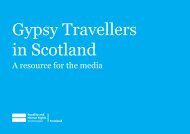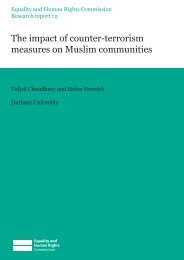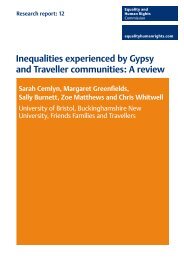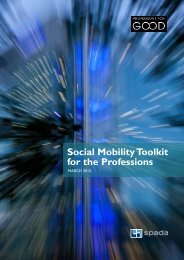Chapter 10: Education - Equality and Human Rights Commission
Chapter 10: Education - Equality and Human Rights Commission
Chapter 10: Education - Equality and Human Rights Commission
You also want an ePaper? Increase the reach of your titles
YUMPU automatically turns print PDFs into web optimized ePapers that Google loves.
<strong>Chapter</strong> <strong>10</strong>: <strong>Education</strong> 369<br />
<strong>10</strong>.8 What we know about use<br />
of the internet<br />
Measure:<br />
Percentage who have had access to the internet within the last 3 months<br />
How this measure works:<br />
Data for this measure are available for the UK from the Office for National<br />
Statistics (ONS) Opinions Survey (2009).<br />
The Office for National Statistics Opinions Survey provides data on age, gender<br />
<strong>and</strong> socio-economic groups. Data are not available for disability <strong>and</strong> ethnicity,<br />
but general literature has been drawn on to indicate some possible issues<br />
that these groups may face. Very limited related literature for this measure<br />
is available by religion or belief, sexual orientation or transgender, therefore<br />
these groups are not covered in this section. The measure recommended by the<br />
<strong>Equality</strong> Measurement Framework focused on use of the internet. However, as<br />
available data for use were limited, internet access is being used as a proxy for<br />
this measure.<br />
Overview<br />
<strong>Chapter</strong> <strong>10</strong><br />
30% of the UK population are unable to access the internet in their<br />
homes. 181 Almost all adults (95%) aged under 70 who had a degree or equivalent<br />
qualification were estimated to live in a household with internet access. Those<br />
who had no formal qualifications were least likely to have an internet connection,<br />
at 52%.<br />
Access to the internet varies dramatically with age, from 96% of 16-24-<br />
year-olds to just 30% of over-65s. 182 Although older age groups are at the centre of<br />
the recent growth in internet access, they are also most at risk of non-usage.<br />
There are no large differences in internet use by ethnic group. Among<br />
Indian, Pakistani <strong>and</strong> Black African groups, those with lower socio-economic<br />
status use the internet more than other ethnic groups in those socio-economic<br />
categories.<br />
181<br />
Office for National Statistics (ONS) 2009. Internet Access Households <strong>and</strong><br />
Individuals. Statistical Bulletin. Available at: http://www.statistics.gov.uk/<br />
pdfdir/iahi0809.pdf Accessed 18/08/20<strong>10</strong>.<br />
182<br />
ONS 2009.


